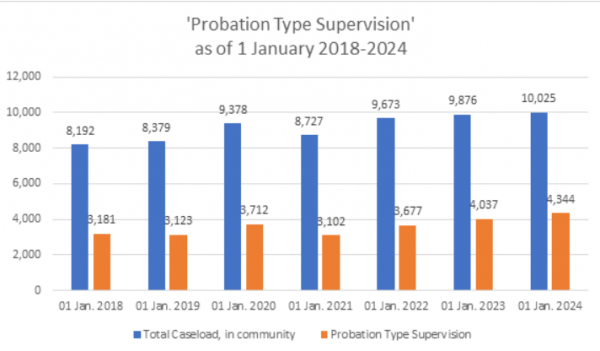Explainer: Conditional Discharge (Probation)
27th February 2024
What is a conditional discharge?
A conditional discharge is when the judge orders a person who has come before the court, charged with an offence, to be released on probation subject to a number of conditions that must be obeyed. A judge grants a conditional discharge based on the personal circumstances in each case instead of sentencing a person or in some cases they may not convict the person if their offence is less serious in nature.
Where a person is conditionally discharged, they will enter a recognisance (a bond) to the court and be required to be of good behaviour while on probation and to appear at court if they are called upon within three years of their release. A probation order may attach additional conditions to a person's discharge; for example, conditions restricting their movement or a restriction on consuming intoxicating substances. They may also be required to pay damages or compensation for loss.
The District Court may grant a conditional discharge for less serious offences and if the person fulfils the conditions of their release for a period of three years, their record will not show a conviction for this offence. A conditional discharge may also be granted for more serious offences in higher courts, but the person’s record will still show a conviction for the offence.
When is a conditional discharge granted?
A conditional discharge can be granted by the court if the judge considers it more appropriate to release a person on probation. The judge will take the following factors into consideration:
- age, health or mental condition of the person;
- seriousness of the crime; or
- extenuating circumstances under which the crime was committed.
What is the legal basis for conditional discharge?
The court may grant a conditional discharge under section 1 of the Probation of Offenders Act, 1907 (as amended).
Statistics on how often a conditional discharge is granted in Ireland
Monthly statistics are published by the Probation Service to provide an overview of its caseload. It provides the number of those who are on ‘probation type supervision’, which includes ‘Probation Orders’, as well as other types of supervision.

(The total caseload comprises these major community supervision categories: Probation Type Supervision, Community Service, and Supervision in the Community Post Release from Custody.)
As of 1 January 2024, there were 10,025 persons on probation in the community. Out of these, 4,344 people were on ‘probation type supervision’ which, amongst others, includes Probation Orders.
Additional relevant information
Breach of Conditions
Where a person does not comply with the conditions of their discharge, the court may issue either a warrant for their arrest or a summons to attend court.
A breach of a condition can have serious consequences as the person may be convicted (if not already), and/or sentenced for their original offence and any further offences.
Related items:
- News at One coverage of Prison inspection reports - RTE Radio One
- Prisoner numbers on course to reach 'unimaginable' level - The Irish Examiner
- Electronic tags for released prisoners to be trialled - Live 95 (Limerick)
- No electronic tagging of prisoners yet despite 2007 law paving the way - Irish Independent
- No beds for over 100 people in Cork Prison - The Echo




